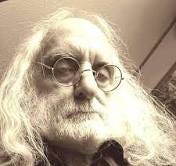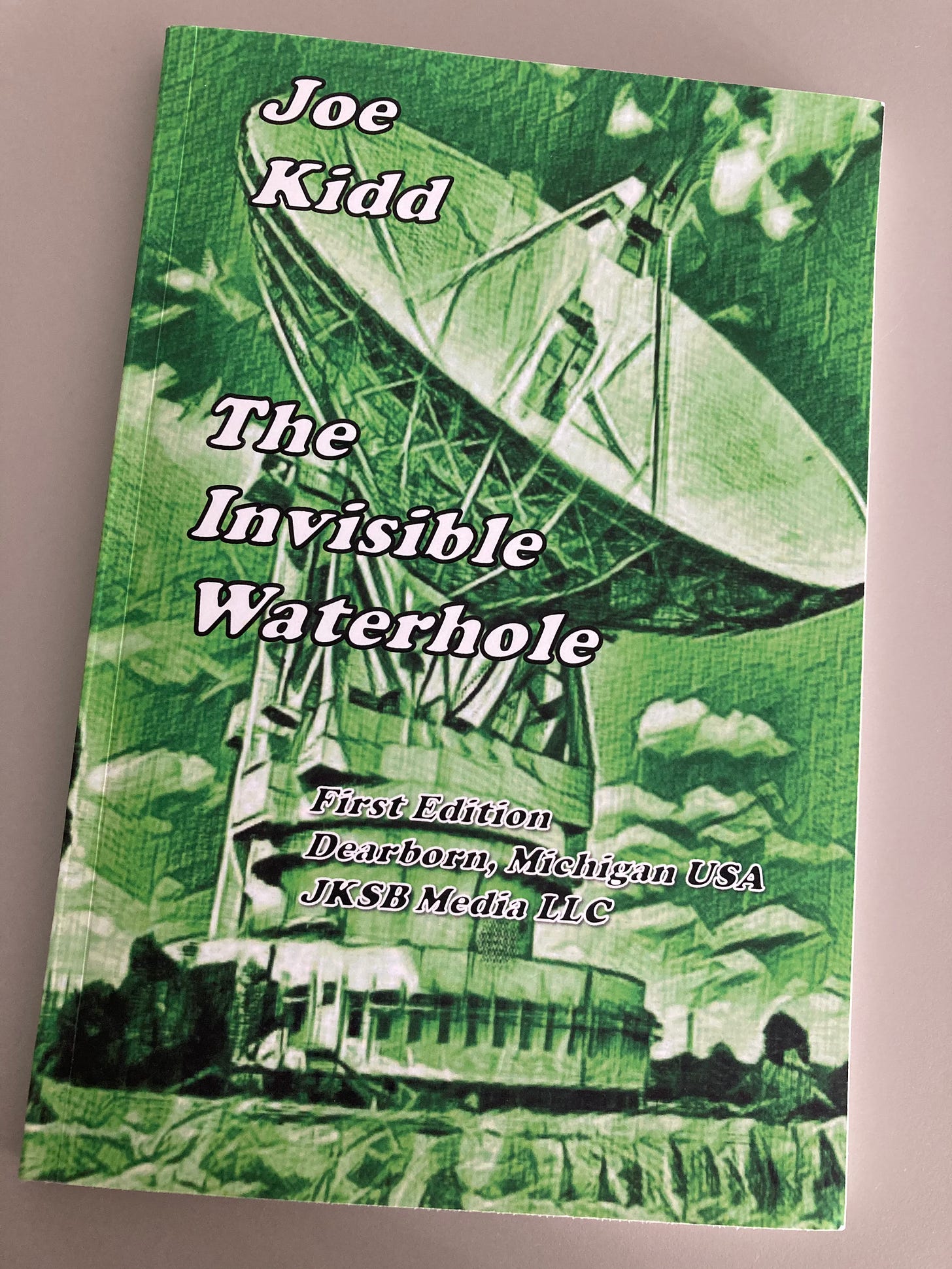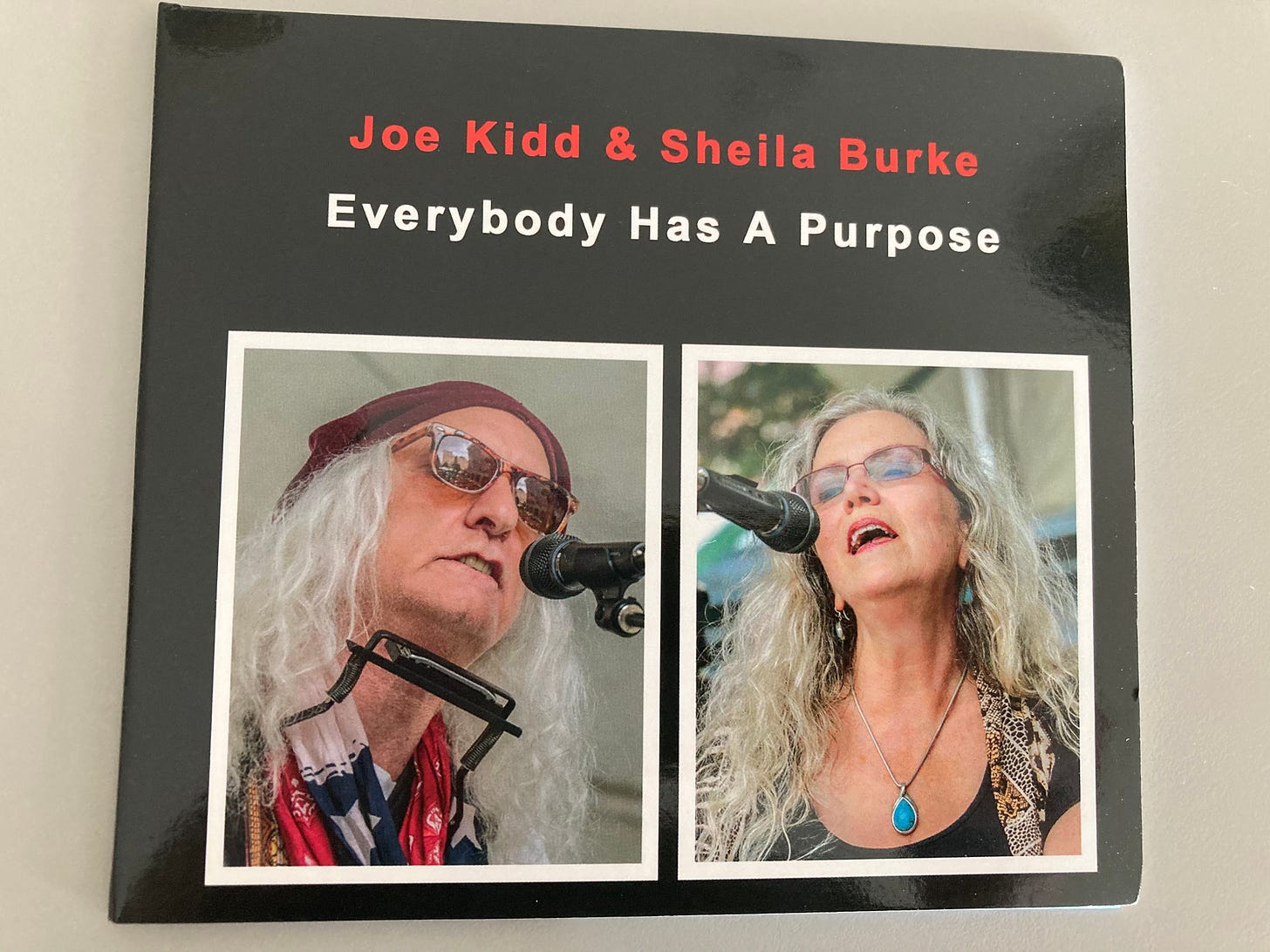Joe Kidd is a working poet/songwriter from Detroit. In 2020, he published The Invisible Waterhole, a collection of spiritual and sensual verse. Awarded by the Michigan Governor's Office and the United States House of Representatives, Kidd is the current Beat Poet Laureate State of Michigan. He is also Official Poet of the Government of Birland, North Africa. He holds an Honorary Doctorate from International Union Peace Federation.
With Sheila Burke he has toured Europe, North America, & the Caribbean Islands, featured in international anthologies, magazines, websites, festivals, and other personal appearances. Kidd is a member of National & International Beat Poet Foundation, 100 Thousand Poets For Change, Society of Classical Poets and Michigan Rock & Roll Legends Hall Of Fame.
For almost a decade and a half, Kidd was guitarist with the band the White Lines, moving in similar Detroit circles to the White Panthers, John Sinclair and the legendary MC5. Rock and the Beat Generation caught up with this ever-active versifier and musician…
What attracted you to the Beats? When did you first encounter them? Do you have a favourite text, novel, or poetry?
When I think of Beat poetry, the first thing that comes to mind is a rebellion against authority and status quo. I recall hearing about ‘the beatniks’ when I was a boy. A magazine article with pictures probably Life Magazine or something similar. When I was young I had a lot of time to read and think on my own. I was spoilt, smart, and fearless. I recall loving their look, their clothes, their cigarettes.
From the time I was six years old my father was handing me books to read. Huck Finn, Zorro. Rumi side by side with Mother Goose and Aesop. In my 20s, I read the Castaneda books. I can’t say I have any favorites. My favorite writers and writings are those who are most revolutionary for their times and, in turn, are universal and timeless. The poet most dear to my heart and soul has always been Arthur Rimbaud. It’s him, and then everyone else. Is he Beat? He wrote what no one else could ever write, created a world. So, my answer is yes.
What is the relationship between the Beat writers and music? How do you think that literary scene and musical sound connect(ed)?
I see the poetry and the music as a circle. One feeds the other and vice versa. It’s certainly true in my own life. In the earlier periods there was jazz. The musical ‘Declaration of Independence’. Free flight and brotherhood, communication in code. Time travel, space travel, the music that the angels play. When the poetry was added, it became a passion play. You cannot read Beat poetry without subconsciously hearing tenor saxophone, bongo, doghouse bass.
Pictured above: Joe Kidd’s 2020 poetry collection
As a poet, writer, and musician, have you been shaped or influenced by Beat experiences?
I was born in Detroit, went to high school in Southern California, came back to Michigan, attended Sacred Heart Catholic Seminary for my college. Studied theology and church history. The saints were all great poets. Within those time frames I left my middle class home and went straight to Ann Arbor to live in a commune. The White Panthers, John Sinclair, MC5, Grande Ballroom, sustained by brown rice and mescaline.
These all became iconic symbols of the Motor City. I played rhythm guitar in my rock band called the White Lines for 13 years. We were inducted into the Michigan Rock & Roll Legends Hall of Fame in 2017. I have studied Mahayana at Jewel Heart, taken the Sufi vow.
All of this was directly the result of brave and talented poet/warriors that came, saw, and conquered fear, boredom, apathy, treachery, and deceit. They cut the path. Their legacy lives in myself, in all who are standing firm and speaking out in the struggle for freedom, and in all who are reading this.
Pictured above: Joe Kidd and Sheila Burke’s 2015 CD release
Which musical artists from whichever era appear to make links with the Beat Generation – and how?
A lot has happened since the original Beats first took flight. Let us first look at the music that they could hear. Of course jazz. Bebop, avant garde, free form. That’s what we think of immediately. I’m certain that they listened to the early folk singers in NYC and elsewhere who were speaking out against oppression and injustice.
The blues masters of the day who came out of the cotton fields of the south: all of that became rock & roll then the sound and the audience got huge. Kerouac described himself as a jazz poet. Parker, Gillespie, Armstrong, Hooker, Muddy, Guthrie, everything. I can’t imagine a life without Beethoven.
Who are your own favourite singers, musicians and bands? Do they represent Beat ideas or attitudes in their lives and art?
I was born in the 50s, a child of the 60s. My father listened to classical and soundtrack music. Mom listened to traditional country. I listened to ‘Louie Louie’, ‘Satisfaction’, ‘Gloria’, etc in elementary school.
In 1964, Lennon became my hero. Great voice, great thinker/writer, hilarious sense of humor, generous and courageous. Those characteristics will get you killed every time.
The first time I heard Dylan I was riding my bike in a severe thunderstorm. I stopped under a canopy at a church. My first FM transistor radio was filled with static as I tried desperately to hear and understand ‘Desolation Row’. It sounded like a transmission from Mars. Alien and prophetic.
Does Dylan represent Beat ideas? We could ask Ginsberg if he were here. Lennon created a new word to name the world’s greatest rock band by using the word Beat. We would be hard pressed to think of anything more representative.
Note: Joe Kidd’s Author Page can be found here: https://www.amazon.com/Joe-Kidd/e/B089QYDXSM. His Official Website is here: www.joekiddandsheilaburke.com






This is fascinating. Joe and I spent time together in April and September of 2024. I could talk to him for ages. Such a great soul. Thank you again for giving him a spotlight.